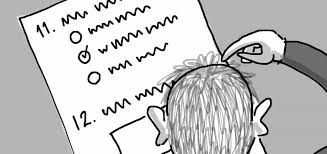Richard Rohr: The Contemplative Mind Is a Mind Liberated from Itself
Within twenty-four hours of Rowan Williams’ address to the Roman Synod of Bishops in 2012, I must have had ten emails from all over the world sending me the following quote and saying, “Richard, you’ve got to read this!” Williams’ words struck a common chord:
[Contemplation] is very far from being just one kind of thing that Christians do: it is the key to prayer, liturgy, art and ethics, the key to the essence of a renewed humanity that is capable of seeing the world and other subjects in the world with freedom–freedom from self-oriented, acquisitive habits and the distorted understanding that comes from them. To put it boldly, contemplation is the only ultimate answer to the unreal and insane world that our financial systems and our advertising culture and our chaotic and unexamined emotions encourage us to inhabit. To learn contemplative practice is to learn what we need so as to live truthfully and honestly and lovingly. It is a deeply revolutionary matter.
Wow! He really does put it boldly. Let’s try to unpackage what this wise and holy man is saying in his very gifted way.
First, contemplation is the key to prayer. Most of us would think that contemplation is prayer, but Williams goes even deeper: it’s a stance that makes prayer possible. Otherwise prayer is just formulas, repeating clichés that we think God likes. Contemplation is resting in God. As Paul says, “We do not know how to pray” (Romans 8:26). I don’t think that ever changes. I just turned 73 and I’m still learning, still a beginner. But then Paul says, “God has come to help us in our weakness and has given us the Spirit who prays in us, with us, through us” and, I always add, even in spite of us (see Romans 8:26-27).
Contemplation is the key to a renewed humanity that is capable of seeing the world and other subjects in the world with freedom. And what is this freedom? Williams says it very clearly: “freedom from self-orientation.” It’s the recognition that life isn’t all about me. Until you’re free from yourself, you can’t be free in the spiritual sense. You can have political or economic freedom, but if you are not free from your own ego, from your own centrality inside of your own thinking, I don’t think you’re very free at all. In fact, your actions and behavior will be totally predictable. Everything will revolve around your security, survival, self-protection, self-validation, self, self, self!
To put it boldly, contemplation is the only ultimate answer to the unreal and insane world that our financial systems and our advertising culture and our chaotic and unexamined emotions encourage us to inhabit. Let’s just look at the emotions issue. I think we all realize–I sure do–that much of the time we’re just jerked around by our passing emotions. So much so, that you don’t have feelings; feelings have you. There is no stable you there to hold and process a feeling or thought. Contemplation teaches you how to stand guard and not let your emotions and obsessive thoughts control you. Contemplation and silence nip the ego and its negatives in the bud by teaching you how to watch and guard your very thoughts. As Paul says, “Then the peace of God that surpasses all understanding will guard your hearts and minds in Christ Jesus” (Philippians 4:7).
Ask yourself when feeling hurt or agitated, “What part of me is feeling this?” The part of you that’s feeling offended or agitated is what Thomas Merton would call your false self. This false self is almost entirely a creation of your own changing mind, and therefore finally an illusion. My novice master called it a cobweb. He would hold out his hand and pretend to blow it away.



